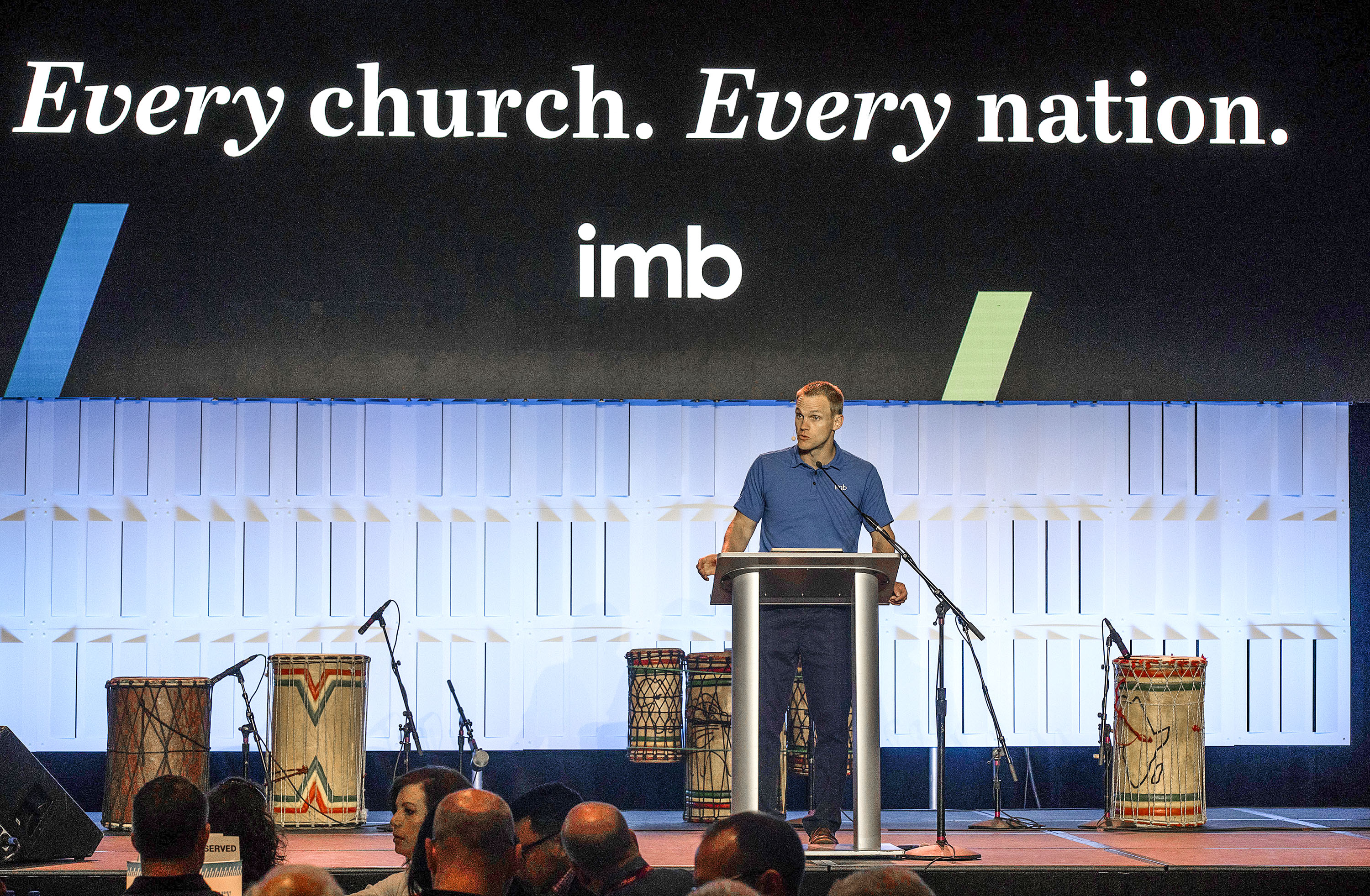
DALLAS (BP) — This year’s Southern Baptist Convention marked the 100th anniversary of the naming of the Lottie Moon Christmas Offering, International Mission Board President David Platt told more than 1,100 Southern Baptists at the IMB dinner June 11 at the SBC annual meeting in Dallas.
 Lottie Moon was a single female missionary who served with the Foreign Mission Board (now IMB) in China from 1873 until her death on Dec. 24, 1912, aboard a ship in the harbor of Kobe, Japan. She is among Southern Baptists’ most well-known missionaries, thanks to the passionate letters she wrote to people back home advocating for more workers and more financial resources.
Lottie Moon was a single female missionary who served with the Foreign Mission Board (now IMB) in China from 1873 until her death on Dec. 24, 1912, aboard a ship in the harbor of Kobe, Japan. She is among Southern Baptists’ most well-known missionaries, thanks to the passionate letters she wrote to people back home advocating for more workers and more financial resources.
“Why did messengers to the convention make sure that we would remember her name 100 years later?” Platt asked. “Why have we raised billions of dollars in honor of this fiery miniature missionary — a 4-foot, 3-inch woman whose feet didn’t even touch the floor when she sat in a chair?”
The answers to those questions, Platt said, date back to Dec. 12, 1840, when Charlotte (“Lottie”) Diggs Moon was born, and to Dec. 21, 1858, when the intelligent young woman with the fiery personality was born again and subsequently had an urgency to impart her faith through missions.
Referencing an 1849 Foreign Mission Board policy that no single woman could serve as a missionary, Platt said Moon “believed that every person, regardless of gender, had a part to play in reaching every nation … that every church, regardless of size or resources, had a part to play in reaching every nation,” Platt said.
‘Why?’
 Through her letters, Lottie reminded Southern Baptists of their responsibility to send and support missionaries. She wrote in a letter dated Nov. 1, 1873, “The harvest is very great, and the laborers, oh! so few. Why does the Southern Baptist church lag behind in this great work?”
Through her letters, Lottie reminded Southern Baptists of their responsibility to send and support missionaries. She wrote in a letter dated Nov. 1, 1873, “The harvest is very great, and the laborers, oh! so few. Why does the Southern Baptist church lag behind in this great work?”
“‘Why,’ Lottie Moon had asked, ‘with so much opportunity to spread the gospel around the world to people who have never heard the name of Jesus, do so few Southern Baptists go to them?'” Platt recounted. “Why were Southern Baptists placing limits on the kinds of people who could go? Why were Southern Baptists placing limits on the amount of support they might send?”
Continuing from Lottie’s letter, Platt read, “The needs of these people press upon my soul, and I cannot be silent. It is grievous to think of these human souls going down to death without even one opportunity of hearing the name of Jesus…. Why are the laborers so few? Where we have four, we should have not less than 100. Are these wild words? They would not seem so were the church of God awake to her high privilege and her weighty responsibilities.”
Platt reminded pastors and church leaders of the challenge Lottie shared from Matthew 9:37: “The harvest is plentiful, but the workers are few.”
He urged pastors and church leaders to pray for more workers to reach the 2.8 billion people throughout the world who have yet to hear the Gospel, challenging them to change those statistics.
“How will we as a convention of churches change that? I bring you good news tonight,” Platt said.
 “The IMB, by the grace of God, is on firm financial ground. We have worked hard to open pathways to send limitless ‘Lottie Moons’ around the world from Southern Baptist churches. But that will not happen if pastors and church leaders in this room do not wake up to your high privilege and weighty responsibility to send them,” Platt said. “This is why we exist as a Southern Baptist Convention: for the sending of missionaries to men, women and children … who have never heard the good news of the Gospel.”
“The IMB, by the grace of God, is on firm financial ground. We have worked hard to open pathways to send limitless ‘Lottie Moons’ around the world from Southern Baptist churches. But that will not happen if pastors and church leaders in this room do not wake up to your high privilege and weighty responsibility to send them,” Platt said. “This is why we exist as a Southern Baptist Convention: for the sending of missionaries to men, women and children … who have never heard the good news of the Gospel.”
The dinner, broadcast on Facebook Live, concluded by allowing guests to read a letter written by a newly appointed IMB missionary and to pray for them as if they were Lottie Moon — “with 40 years of trials and triumphs ahead of them.”
Platt and Edgar Aponte, IMB vice president for mobilization, also assured pastors and church leaders that IMB is listening to churches.
“We spent many months learning from churches of all sizes in an effort to be a better partner,” Aponte said.
“At IMB, we believe that every church, regardless of size or resources has a part to play in the Great Commission,” Platt said. “There is no church too small to send missionaries when we are working together. There is no church too big to send missionaries with us.”
“Every church. Every nation,” Platt concluded. “Together this coalition of 40,000 churches can make a massive dent in getting the Gospel to the nations.”














